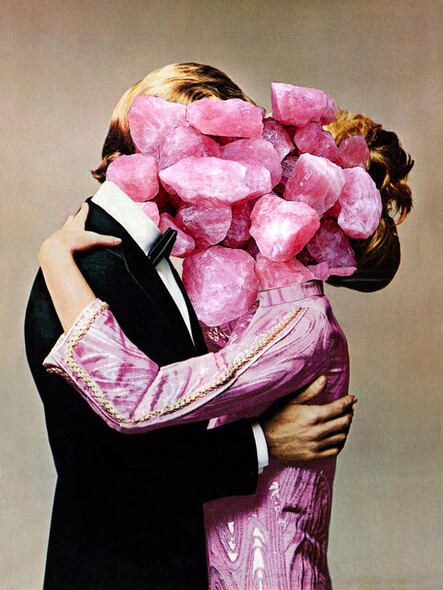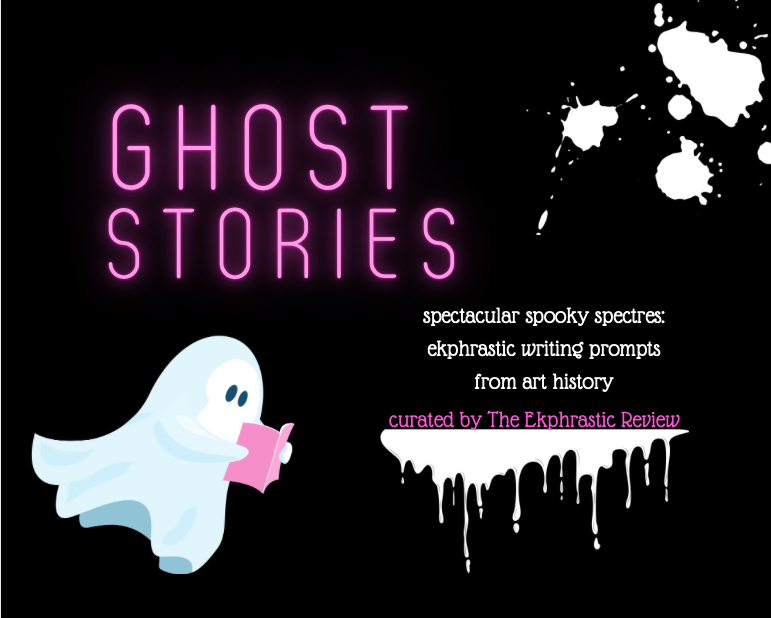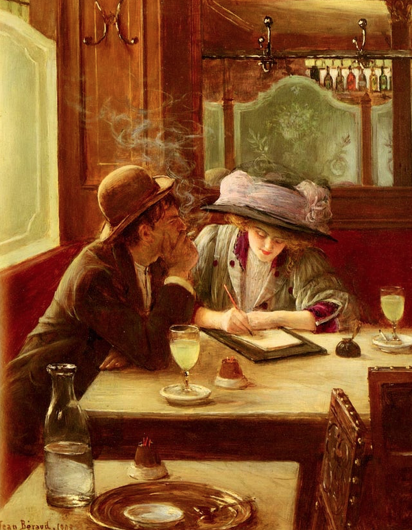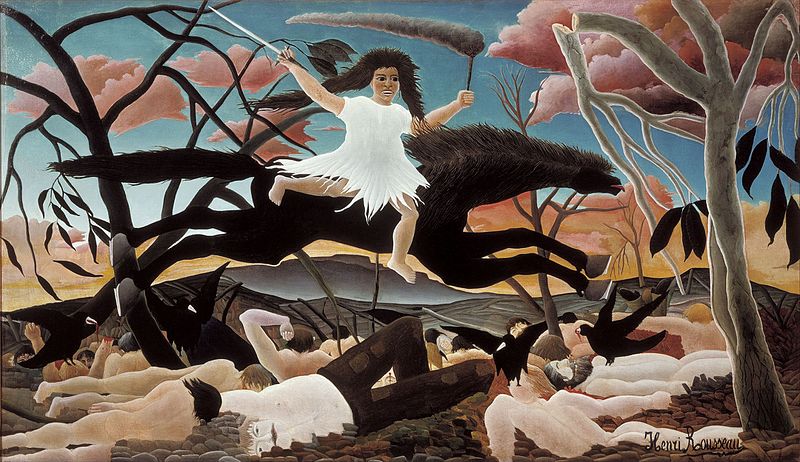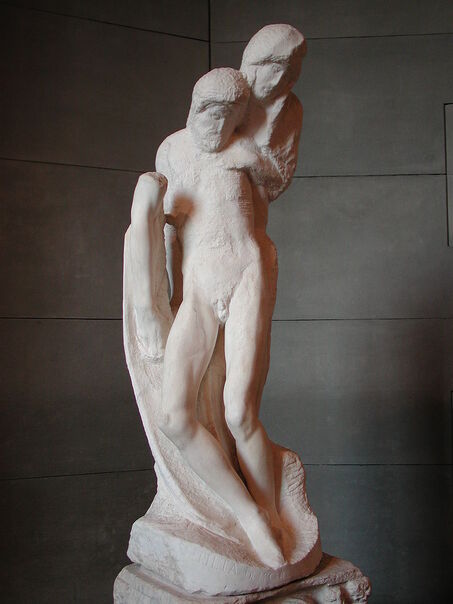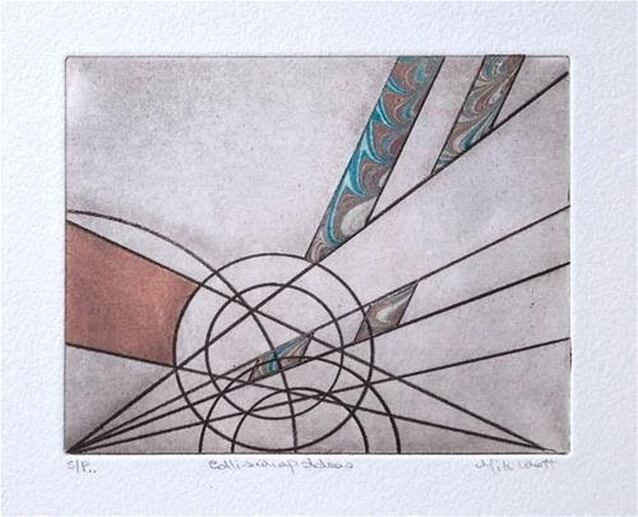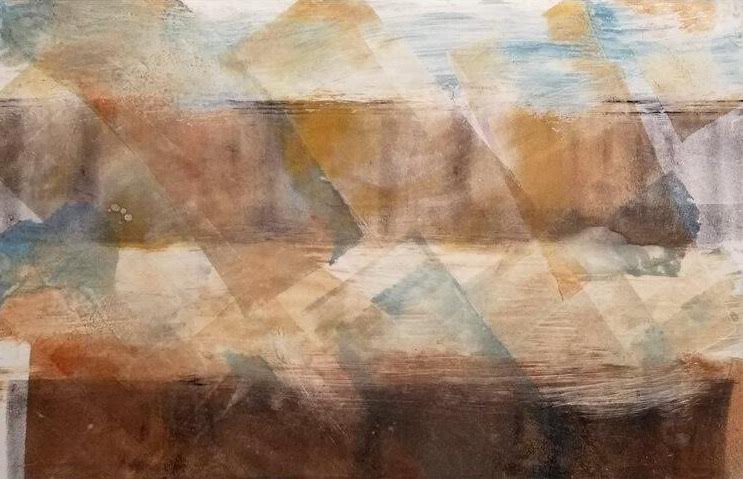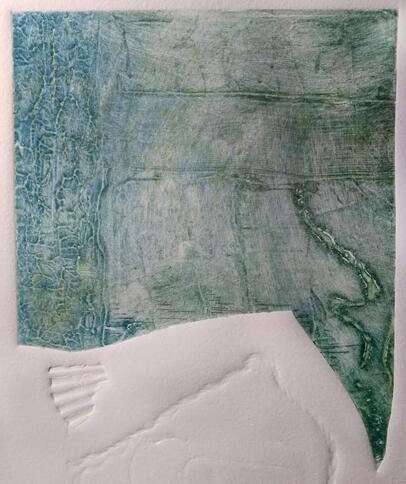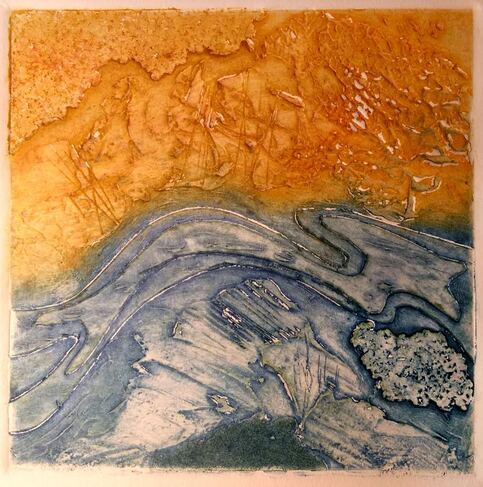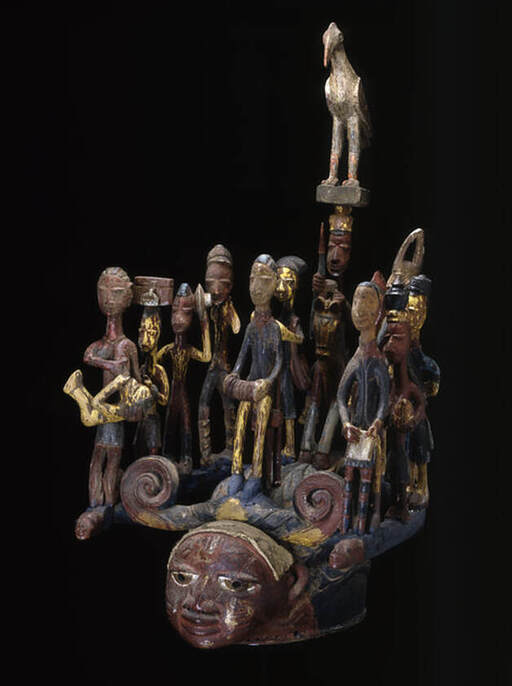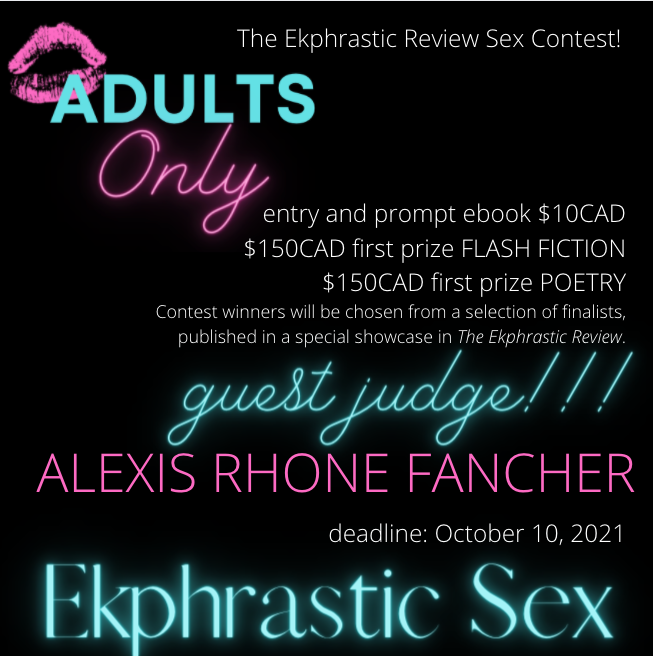|
Gary, Ballerina Gary doesn’t like to show his face. Or at least, he said he doesn’t have one. When he was first shipped here he told me that he had spent some years as a trapeze artist in Cirque du Soleil, then as a sword swallower in Johannesburg. An accident had brought him back in this business a few years ago and left the space above his shoulders empty except for a larynx, a voice box, and a throat. Now he prefers the life of a sculpture, boxed and labeled crimson FRAGILE, but he doesn’t like it when I call him that. He calls himself a music box ballerina. “I am no David; I am Gary,” he told me. “I am a music box ballerina who dances when opened. Spins until the lid is closed then folds back into the dark. The beautiful dark. We can just get over this quickly. Please.” I told him that I am no Michelangelo, and that he does not need to be David, sculpture; he can be Gary, Ballerina, but not Gary, music box ballerina. “I need you to dance,” I said. “I need you to dance in front of the camera, not just spin like you are used to. Move, but move like you are on a stage. Think: spotlight on your viscera. Limbs on marionettes.” Gary stood frozen for a few seconds, the top of his throat bulging pustule-like. And then he started, first twirling around the studio with his left foot soled onto floorboards. Then the old trapeze instincts came in. He danced—no, he flew—the thrust of his torso angling on stage lights. Camera lights. Shutter freeze. Navel-grazing miroirs. Storks floating in the sweat-salt of riverbeds. He hung there for a few seconds, suspended in the air, a wiggling abalone hooked by the throat. And then he started to fall, trench-like, streaking the walls shades of a long, red tongue. He dropped to the floor: his limbs thwacked onto the tiles. The sound of an overripe mango crushed on impact, the skin damp and pulpy. Gary contorted his body, shaking, dragging the left leg over the hollow of his throat, his left arm squashed on the floor and his right palm burning half-moons into his foot. His right leg twitched, then stilled. “It’s the box-button—here,” he gasped. He pointed at his belly button. In there, the underside of his navel bulged, growing arms, then legs, and finally the marbled torso of a thin, long silver rod. It was the tooth of the music box, he told me. Or a sword from his past—he did not even know what was buried in the body. “Get me back to the box,” he whispered, throat pulsing gray. I nodded to his back, shuttered the camera, and folded him back inside. Christina Pan Christina Pan's short stories and poems appear or are forthcoming in Vagabond City Lit, Eunoia Review, and Interstellar Literary Review. She lives in NYC.
0 Comments
Unknown, Circa 1910 In a photo from a salvaged dresser, a teacher scarcely older than her pupils stands, rigid behind an empty chair, alongside older boys in jackets and ties by the back door of a one-room schoolhouse, small girls in pinafores and dresses, so few girls, on the right by the main. All are white. Nearly all stare earnestly forward with somber faces, only one, head cocked, hand on a friend’s shoulder, invites with a smile, only one gazes aside at the ground, white bow double the size of her head, in a pinafore as white and pristine as the years yet to come, so like her own oversized bow—a four-year-old on a settee. A serious face, the one I always knew. She never seemed a carefree soul. She lost so many children before my uncle was born, then my aunt, then my mother. (I learned early to be seen and not heard.) Almost at the top of the photo in the cropped window panes, the straight, slim bole of an elm unbroken by low branches canopies above these students who see past me, all but that girl, who see the camera, perhaps the schoolyard, the tree, which may live still beyond the frame, even then so much older than these children whose lives flamed and guttered long ago. Clear in the reflection. At once I hold hundreds of years of future and what is past in my hand. Elaine Wilburt Elaine Wilburt’s fiction and poems have appeared or are forthcoming in various online and print journals including Puerto del Sol, Broad River Review, Uppagus and Heart of Flesh, among others. She lives in Maryland with her family, for whom she bakes 8-12 loaves of bread per week and countless other treats. The Touch You could say Zoe had the “Midas touch,” although her touch was always deliberate. And instead of gold, what she touched, with her soft, full lips, instantly became rose quartz. Rose quartz: heart stone, stone of tenderness, of sensual imagination. It was that imagination which fueled Zoe’s ever-burgeoning abundance of crystal spires and delicate primrose spheres. Like the roses in Midas’s fragrant garden, the quartz gave off a heady, slightly oceanic perfume. Her house was a glittering pink cave turned inside out. Zoe, unlike hapless Midas, trained her power. Only her kiss kindled transformation. She favoured men who craved domination of a subtler kind than those who trembled for whips and chains and overt humiliation. She chose masks beaded with tiny polished quartz drops, wore rose silk damask instead of black leather, preferred the steel talon sheathed in a pearl-pink velvet glove. When dining with a new man, she ate with her teeth bared, offering a delicious frisson of terror, a whisper of the vagina dentata of folklore and Freud. If he interested her enough to take him home, she’d bind him with pink silk threads, stroke him with her seashell nails, instruct, “You must not ever kiss me on the lips.” Then, she’d give him a little Cheshire smile. “But you may kiss me there, and there, and . . .there.” If a man was foolish enough to steal a kiss, an electrifying hardening began at his core, swiftly radiating outwards. His lungs and stomach, muscled chest and thighs, his fine chin and lovely brow became chunks of pink quartz. But all men eventually grew tiresome, and she rewarded their obedience with a fatal kiss. It always ended thus. We might wonder what distant trauma fed the coldness of Zoe’s heart. But the past was past and she felt no need to ponder it. Still, we might hope that Zoe, like the king whose deadly touch took away all sustenance of bread and wine, the scent of roses, even his beloved daughter, would someday renounce her touch of glacial rose. We like to think that the cruel, the greedy, the selfish repent their misguided ways. Or are forced to. We would approve–even desire–with a touch of sorrow or sympathy, of course–that Zoe get her comeuppance. She might fall so truly and deeply in love, forget her magic touch, and thus murder the only man she ever permitted to enter her heart. She might forget to take her pill and so bear a child and watch his sweet face turn to rosy ice as she welcomed him with a tender mother’s kiss. Fiction often teaches us to expect atonement or punishment. Alas, this is not one of those stories. There was no redeeming character arc or corrective reckoning for Zoe. She continued as always, forever desirous, forever replenishing her treasure chest of intimate yet cool summer rose. Mary Roher-Dann Mary Rohrer-Dann is the author of Taking the Long Way Home, (Kelsay Books 2021), and La Scaffetta: Poems from the Foundling Drawer (Tempest Productions, Inc., 2011). Recent work also appears in Philadelphia Stories, Clackamas Review, Third Wednesday, South Shore Review, Vestal Review, Rat’s Ass Review, and is forthcoming in Keystone: Contemporary Poets on Pennsylvania. She volunteers at Big Brothers/Big Sisters, Rising Hope Stables, and Ridgelines Language Arts. Although she has long lived in central PA, she is still a Philly girl at heart. Wander the shadowy corridors of art history where ghosts walk through walls...a curated collection of forty paintings and other artworks on the theme of ghosts. Inspire your ekphrastic writing practice!
Sign up for our first online wine and art write night on Wednesday! Let's get together in the Zoom pub and write together. We will look at several works of art and use them for inspiration in some writing exercises. Bring your own Cabernet!
Wednesday September 29, 2021 6 to 8 pm EST $30CAD Elementary School My child-eyes saw the girl in the white feathered dress —and the black horse, hooves sprawled across the orange hills— a clarion angel, glorious when flying off the great galloping beast —the horse’s head a spear, its tongue an arrowhead-- her mane-hair streaming, teeth gleaming in a smile, gripping sword and smoking torch, striding to riotous victory. Rosy clouds on a clear blue sky make her leap joyous, exuberant energy! My child eyes did not see the bodies strewn underfoot, butchered limbs and deadened eyes, crows feasting on the carrion of men, their forms like hillocks, flowing streams among the pebbles and the pain. I saw no burnt trees in her wake, no branches broken by her power over death, the teeth bared in a grimace not a grin. How could I have not known her name? Eugenia Kim Eugenia Kim is author of The Calligrapher's Daughter, winner of the Borders Original Voices Award, shortlisted for the Dayton Literary Peace Prize, and Critic’s Pick and Best Historical Novel of 2009 by The Washington Post. Her second novel, The Kinship of Secrets, was an Amazon Literary Fiction Best Book of the Month, a Library Reads best of November pick, and received a Booklist starred review. The Rondanini Pietà This would be the other one, the one an artist sculpts at the end, when life can clearly be deciphered, the cloud of false starts and anger and failure finally settling. His first was so “perfect” so “done.” This so naked in its faults (an arm left hanging where a fuller Christ had been, Mary barely scraped from the stone) can only be by one who knows the hollowness of surfaces. Spare and vertical (compared to the slab-like corpse of the first), this one seems so vulnerable. No sensuous beauty, gawky fact – it takes a mother’s care to hold him gently up. She’s lost in grief, hunched, but strong enough to heft a body. Like some marvellous eclipse, her shadows tent what might soon be. Death? Yes, for Michelangelo. But more. Thomas Holahan Thomas Holahan has conducted poetry workshops in Boulder, Colorado and Berkeley, California. Often his poetry takes on the quest for the transcendent in the ordinary world. He has recently been published in the journal Presence. Currently he leads the poetry collective Poets@StPauls in New York City. Collision Against the white pallor of the world, or let’s say today’s sky and not be so grand, I hope for an arm of sun to solace me for a collision with a new haunting from child-time. It is a specific drama in three lines, with a cast of three siblings, neither young nor old, that fresh impales: one, a boy, man enough to be a mariner (just), and the other a man, boy enough to teach and write (just), and I, a tall girl still growing, studying ballet’s geometry of longing. The first stood, kitchen-left, declaiming, “I’ll be an officer in my uniform one day, and he’ll be a renowned author, and you will be a famous ballerina and we will see you dance.” Such a singular prophecy of success collided with what I knew would really belong to us, schooled as we were in numbing failure. Shafts from before have twice the velocity of earth’s arrows, sometimes. But see: even among collisions – one colored dried-blood red – other shafts hold angel wings, and many are clear, and open to anything. Loss Lost clouds wounded clouds, I thought – purple bruises on strips of sky brooding low over the horizon, as though earth had kicked upwards where it lay on its bed, wanting to kick the sky away as it bent too close, smothering. And earth, a fretful child, wanted only to be left alone, too frustrated to do anything but kick and toss its head side to side and cry, I thought. I thought all this as I drove along a highway, a long journey in unknown country. Storm coming, I mused: those bruised clouds. Later, much closer, I lifted my eyes and saw a maze of hills, glazed a softly praying brown, swirls of mist. A blue sky stepping toe first through tulle grazed my mind. Purple clouds were – stunning revelation – really mountains – strange backhand mirage – they’d looked like creation’s ontic bruises from a distant place. Saving transfusion of everything: no storm coming, no kicking earth, no bruised sky; only prehistoric monuments to endurance, running with streams of melt-water to shrive and quench, running with hope. Eve’s Scrapbook And this is me, just coming into being in Collograph 5. This image of my emergence, with my crude arm, my spatulate hand, my pointy elbow and what looks like a very large breast going the wrong way, immortalized, rather exposes a total want of grace, don’t you agree – a thorough-going physical awkwardness. In the interests of transparency, let me just say that I’d have thought He would have given me, as Original Model, more style, and assembled my component parts with greater precision - and even aplomb, wouldn’t you? But, this is a Don’t look till I’m done! moment. Well. I suppose that makes a theological statement, doesn’t it. While it beggars belief that it could’ve been like this, I now see that our creative processes, with their Don’t-look-till-I’m-done! element, are presaged by a divine one: thumping and gawky. I note, too, that although I’m barely there, you can already see the incipient snake, knowing exactly where he is going. God Talk Orange-gold is my brooding colour – a bit counter-intuitive, true, but it suits me somehow when I brood over the formless deep. And now see how a wave of yearning sobs – human beings (I’m just thinking aloud here: they don’t exist yet), will have a hard time understanding it. They will think their yearning is for each other – as it is, but, ah – it is also metaphor. They must learn that yearning and being are one, as Word and Voice, as Dancer and Dance. Everything that will be will yearn. I yearn. You wouldn’t think so to look at me, I know. Surprise. Now, where was I? Yes. The formless deep. When I stand back to look at it, I think it needs a touch of iridescence to crown its seething propensity. Shall I give it its own dressing of glittering orange-gold? I’ve already created Light, but it needs some refining. Too fast. Too everywhere. Better if we have to wait for it, after a time of darkness. Shall we make a great ball of fire? Shall we? And let this orange blaze bejewel the sea, scatter light like gemstones from the hot depths of the (as yet) uncreated mountains? What shall we call it, my love? Johanna Caton Johanna Caton, O.S.B., is a Benedictine nun and lives in England, but was born and raised in America, and lived in the U.S. until adulthood, when her monastic vocation took her to the U. K. Her poems have appeared in both online and print publications, including The Christian Century, The Windhover Literary Journal, The Green Hills Literary Lantern, and on The Catholic Poetry Room web page at: https://www.integratedcatholiclife.org/?s=johanna+caton Miki Lovett is a printmaker who lives in Sun City, Arizona. She works in monoprint, etching, marbling, collagraph and blind embossing. Her monoprints and etchings are done in abstract subjects; her collagraph and embossing are usually based in geometry. Her work is exhibited in a number of galleries and art centres in Massachusetts. For more information on Miki Lovett's work, please visit her website. https://mikilovett.com/index.php Read more poetry by Johanna Caton on Miki Lovett here. The responses for the Magbo Helmet are up! Thank you to every one of you who wrote a story or poem inspired by this artwork. We had a tough time selecting this time with so many wonderful pieces. Click here or on image above to read the responses. Ekphrastic Sex: the Contest Our new writing contest for flash fiction and poetry is on the theme of SEX. We are absolutely thrilled to have Alexis Rhone Fancher as our guest judge!!!!! Alexis is an ekphrastic contributor and she is also well known for her sensational writing on themes of human sexuality. (Her bio follows the RULES below.) Our special Adults Only ekphrastic sex ebook has sixty artworks on various themes and interpretations of human sexuality. The ebook is $10CAD and purchase includes entry fee. Selected entries in both categories (flash and poetry) will be published in a special showcase of The Ekphrastic Review. Alexis will choose one winner in flash fiction and one in poetry. Prizes are $150CAD in each category. Please note, this contest and the artworks in the ebook may not be for everyone. Content Warning You must be over 18 to view the contents of this publication. Some people may find the artworks here to be offensive. More than likely, everyone will be offended or disturbed by some of the images. While the works shown are all paintings, drawings or sculptures, some are extremely explicit, and some were created intentionally as pornography before the camera existed. Human sexuality is complex and varied and involves a wide range of practices, bodies, and themes. It is not always healthy or kind, and everyone’s view of what is acceptable or normal differs. The purpose of curating this collection is not to simply showcase beautiful artworks with bare breasts. It is to delve deeply into both the dizzying heights and the darkest recesses of the history of art, culture, and the human psyche, on themes related to human sexuality. It is about making your writing more naked than ever before. ** RULES 1. Click on button below to purchase your ebook of sixty visual art prompts on the theme of sex. 2. Write from any or all of the artwork prompts. You may submit up to five pieces per entry. You may enter as often as you wish with up to five works per entry, but each entry must include the entry fee of $10. (In other words, if you want to send fifteen pieces, please order a total of three ebook/entries. If you send five poems, and end up writing another batch you want to submit, please remit entry fee a second time by purchasing ebook again.) 3. You may write flash fiction or poetry, or a combination, up to 1000 words each. 4. We are looking for inspired, literary works on the complexity of the subject matter. This may of course on occasion include sensitive language and frank, mature discussion. We aren't looking for smut, however, or gratuitous, porny work without nuance. Your poem or story should be a work of art, not a Penthouse letter. 5. Deadline is October 10, 2021. 6. Send your entry to [email protected]. In subject line, put EKPHRASTIC SEX CONTEST. 7. We hate to censor your creativity and will try to accommodate experimental formatting, but be aware that flush left formats work best for the web. Complicated formats or spacing is difficult or impossible to reproduce faithfully. 8. Your work must be inspired by the prompts in the book. They can incorporate a description of the art or connect to the artwork's history or subject matter, or to the artist biography, or they can use the art as a point of departure for imagination, memory, correlation, etc. In other words, the writing can be about the art or about anything else the art triggers you to dream up. 9. The Ekphrastic Review will publish selected works in special showcases from the entries. These are the finalists. Of these selections, guest judge Alexis Rhone Fancher will choose her favourite in each category. The judge's decisions are final. 10. The winners will each receive $150. Winners will be paid by PayPal. 11. Winners will be chosen and announced by early November 2021. 12. Please include a third person biography up to 100 words. 13. Your ebook purchases and entry for special contests are invaluable in allowing us to have cash prizes and are a tremendous support to the journal. Thank you. Only cash prize contests have mandatory entry fees. General submissions and bimonthly challenge submissions remain free or voluntary fee payment for all. Thank you for your support. ** Alexis Rhone Fancher is published in Best American Poetry, Rattle, Hobart, Verse Daily, Plume, Tinderbox, Cleaver, Diode, The American Journal of Poetry, Spillway, Nashville Review, Poetry East, and elsewhere. Her published books include: How I Lost My Virginity to Michael Cohen & other heart stab poems (Sybaritic Press, 2014), State of Grace: The Joshua Elegies (2015), Enter Here, (2017), and The Dead Kid Poems, (2019), each published by KYSO Flash Press, and Junkie Wife (Moon Tide Press, 2018). EROTIC: New & Selected, New York Quarterly (2021), and Stiletto Killer, a full-length collection (in Italian) to be published in 2021 by Edizioni Ensemble, Italia. Coming up in 2022, New York Quarterly will also publish Alexis’ next book, a full-length erotic follow up to Enter Here, entitled Last Exit, and DUETS, an ekphrastic chap-book written with poet Cynthia Atkins, will be published by Harbor Editions. Her photographs are featured worldwide, including the covers of Witness, Heyday, Blink Ink, and The Pedestal Magazine. A multiple Pushcart Prize and Best of the Net nominee, Alexis is poetry editor of Cultural Daily. www.alexisrhonefancher.com Adults Only: Ekphrastic Sex ebook
CA$10.00
Sixty curated artworks on the theme of sex, to inspire your ekphrastic writing practice. Content Warning You must be over 18 to view the contents of this publication. Some people may find the artworks here to be offensive. More than likely, everyone will be offended or disturbed by some of the images. While the works shown are all paintings, drawings or sculptures, some are extremely explicit, and some were created intentionally as pornography before the camera existed. Human sexuality is complex and varied and involves a wide range of practices, bodies, and themes. It is not always healthy or kind, and everyone’s view of what is acceptable or normal differs. The purpose of curating this collection is not to simply showcase beautiful artworks with bare breasts. It is to delve deeply into both the dizzying heights and the darkest recesses of the history of art, culture, and the human psyche, on themes related to human sexuality. It is about making your writing more naked than ever before. |
The Ekphrastic Review
COOKIES/PRIVACY
This site uses cookies to deliver your best navigation experience this time and next. Continuing here means you consent to cookies. Thank you. Join us on Facebook:
July 2024
|


